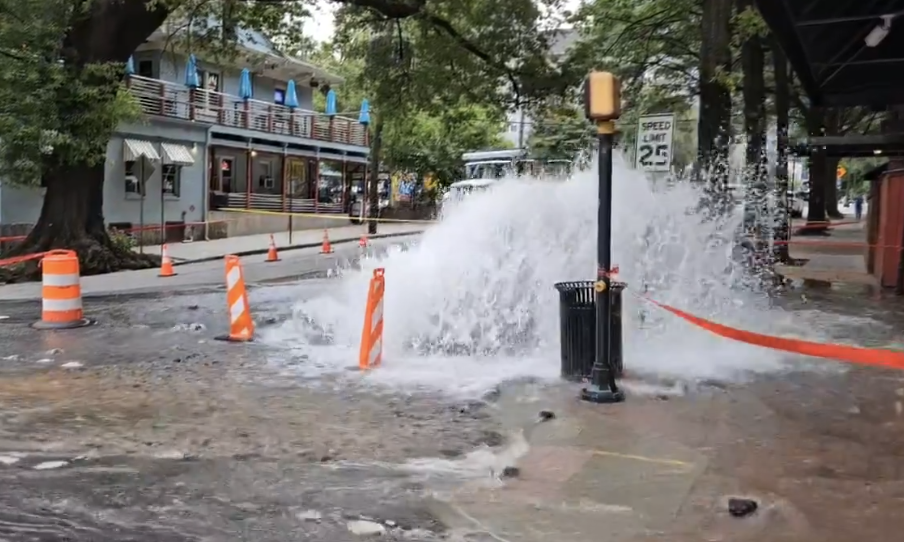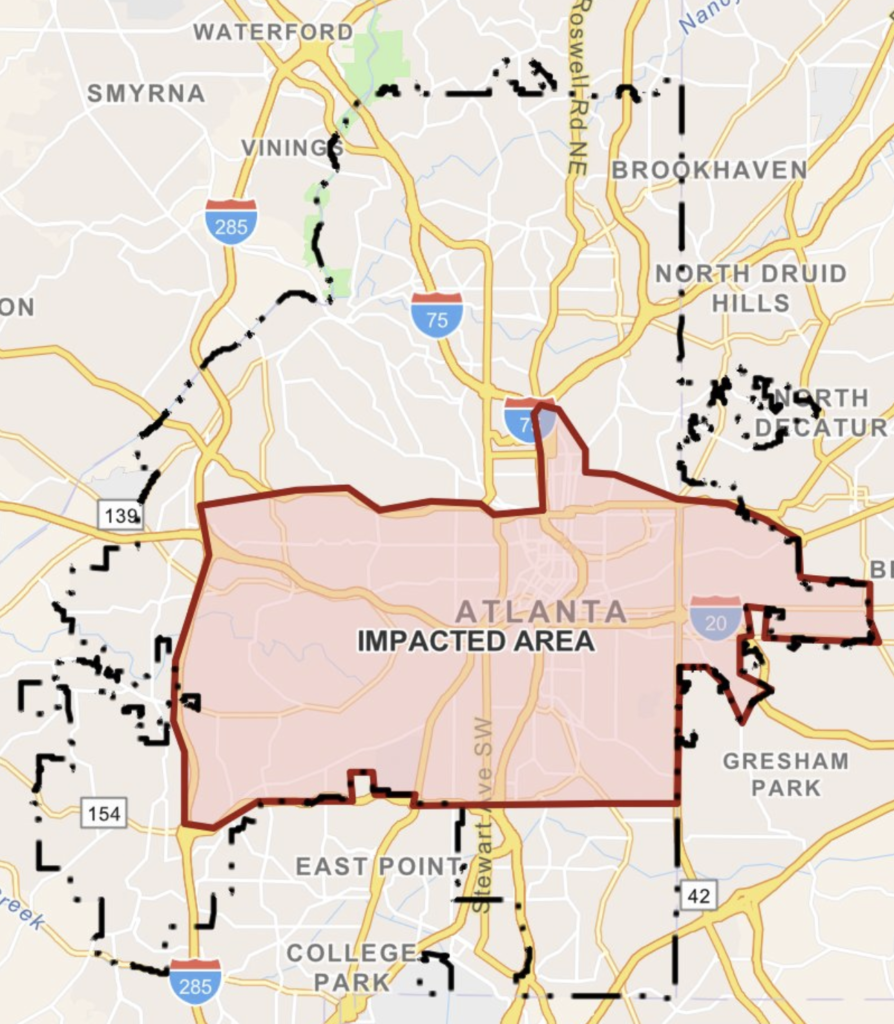Atlanta Boil Water Advisory: What You Need To Know Right Now
Hey there, folks! If you’ve been keeping up with the news in Atlanta lately, you might’ve heard about the Atlanta Boil Water Advisory. It’s a pretty big deal, and it’s affecting thousands of residents in the city. So, if you’re wondering what this advisory means for you and your family, you’re in the right place. Let’s dive in and break it down for ya!
Look, water is one of those things we take for granted until something goes wrong. And when it does, it gets real serious, real quick. The Atlanta Boil Water Advisory is exactly that—a situation where the city’s water supply might not be as clean or safe as it should be. Now, before you freak out, let me explain what this means and what you can do to stay safe.
This isn’t just about boiling water for tea or coffee anymore. It’s about making sure the water coming out of your taps is safe enough to drink, cook with, or even brush your teeth. So, buckle up, because we’re about to walk you through everything you need to know about this advisory.
Read also:Saucony Progrid Triumph 4 A Runners Dream Shoe Unveiled
The Atlanta boil water advisory is no joke, and it’s important to understand why it’s happening, how long it might last, and what steps you need to take to protect yourself and your loved ones. So, without further ado, let’s get into the nitty-gritty!
What Exactly Is a Boil Water Advisory?
Alright, let’s start with the basics. A boil water advisory is basically a precautionary measure taken by local authorities when there’s a potential risk of contamination in the water supply. This could happen for a bunch of reasons—like a water main break, power outage at a treatment plant, or even some funky bacteria sneaking into the system.
Now, when an advisory is issued, it means you need to boil your tap water before using it for anything that involves consumption. That includes drinking, cooking, making ice, brushing your teeth, and even washing your fruits and veggies. Yeah, it’s a bit of a hassle, but trust me, it’s better safe than sorry.
Why Do We Have to Boil the Water?
Boiling water is like giving it a little spa treatment to kill off any nasty germs or bacteria that might be lurking in there. When water is heated to a rolling boil for at least one minute, it pretty much wipes out most of the harmful microorganisms that could make you sick. So, even if there’s something sketchy in the water, boiling it ensures you’re not swallowing any trouble.
How Did the Atlanta Boil Water Advisory Happen?
Let’s get into the specifics of what caused this advisory in Atlanta. Recently, the city experienced some issues with its water infrastructure. Whether it’s a busted pipe, a glitch in the treatment process, or even heavy rainfall messing with the water quality, these things can happen. And when they do, the city has to act fast to keep everyone safe.
In this case, the advisory was triggered due to a combination of factors, including maintenance work on the water system and concerns about pressure drops in certain areas. When water pressure drops, it can create a vacuum effect that might suck in contaminants from outside the pipes. Not exactly what you want in your drinking water, right?
Read also:Kamala Harris Drag Race The Ultimate Showdown Between Politics And Entertainment
What Areas Are Affected?
Not everyone in Atlanta is affected by this advisory, but it’s still crucial to know if your neighborhood is one of the impacted zones. The city has released a detailed map outlining the affected areas, so be sure to check it out. If you’re not sure, it’s always better to err on the side of caution and boil your water anyway.
How Long Will the Atlanta Boil Water Advisory Last?
This is probably the question on everyone’s mind. How long do we have to keep boiling water before we can go back to normal? Well, the duration of a boil water advisory can vary depending on the situation. In most cases, it lasts anywhere from 24 to 48 hours, but sometimes it can stretch longer if the issue is more complex.
The city will lift the advisory once they’ve completed thorough testing and confirmed that the water is safe to drink. Until then, it’s all about patience and following the guidelines. Keep an eye on official updates from the city or your local water utility to stay in the loop.
What Happens If You Drink Unboiled Water?
Drinking unboiled water during an advisory can lead to some unpleasant health issues. The contaminants could include bacteria, viruses, or even parasites that can cause illnesses like gastroenteritis, diarrhea, vomiting, and other nasty symptoms. Yikes, right?
Now, not everyone who drinks contaminated water will get sick, but the risk is definitely there, especially for vulnerable populations like young kids, pregnant women, and people with weakened immune systems. So, it’s always best to play it safe and stick to boiled or bottled water until the advisory is lifted.
Tips for Surviving the Atlanta Boil Water Advisory
Alright, let’s talk about how you can make it through this advisory without losing your mind. Here are some practical tips to help you manage:
- Stock Up on Bottled Water: If you haven’t already, now’s the time to grab a few cases of bottled water. It’s a lifesaver for drinking, cooking, and even washing your hands.
- Boil Water in Batches: Instead of boiling water one cup at a time, do it in larger batches to save time and energy. Use a big pot or kettle to make the process easier.
- Use Coolers for Storage: Once you’ve boiled the water, store it in clean, airtight containers or coolers to keep it fresh and ready to use.
- Sanitize Your Dishes Properly: If you’re washing dishes during the advisory, make sure to sanitize them with a bleach solution to kill any lingering germs.
- Stay Hydrated: Even though it’s a hassle, don’t neglect your hydration. Drink plenty of safe water to keep your body happy and healthy.
Can You Shower or Bathe During the Advisory?
Yes, you can still shower or bathe during the advisory, but there are a few precautions you should take. For adults, it’s generally safe to shower as long as you avoid swallowing the water. However, for young kids or anyone with open wounds, it’s a good idea to use boiled or bottled water to rinse off. Better safe than sorry!
Official Guidelines and Resources
When it comes to a boil water advisory, it’s important to rely on official sources for information. Here are some resources you can check out:
- City of Atlanta Water Department: Their website will have the latest updates and official statements about the advisory.
- Centers for Disease Control and Prevention (CDC): The CDC provides detailed guidelines on how to handle boil water advisories and ensure water safety.
- Local News Outlets: Keep an eye on your favorite news channels or websites for real-time updates on the situation.
How to Test Your Water at Home
If you’re curious about the quality of your water, you can always do a DIY test at home. There are plenty of water testing kits available that can help you check for contaminants like bacteria, lead, or chlorine. Just remember, these tests aren’t a substitute for professional testing, but they can give you a general idea of what’s going on with your water.
Long-Term Solutions for Water Safety
While boil water advisories are usually temporary, they highlight the importance of having a reliable and safe water supply. If you’re concerned about water safety in the long run, here are a few things you can consider:
- Install a Water Filter: A good quality water filter can help remove impurities and improve the taste of your water.
- Invest in a Water Softener: If you live in an area with hard water, a water softener can make a big difference in your daily life.
- Stay Informed: Keep up with news and updates about your local water system to stay ahead of any potential issues.
What Can We Learn From This?
The Atlanta boil water advisory serves as a reminder of how crucial clean water is to our daily lives. It also highlights the importance of maintaining and upgrading our water infrastructure to prevent these kinds of situations from happening in the future. So, let’s use this as an opportunity to advocate for better water systems and policies.
Conclusion: Stay Safe and Stay Informed
Alright, folks, that’s the scoop on the Atlanta boil water advisory. Remember, it’s all about staying safe and informed during this time. Follow the guidelines, keep an eye on official updates, and don’t hesitate to reach out if you have any questions or concerns.
And hey, if you found this article helpful, don’t forget to share it with your friends and family. The more people know, the better prepared we all are. Let’s work together to make sure everyone in Atlanta has access to clean, safe water. Cheers to that!
Table of Contents
- What Exactly Is a Boil Water Advisory?
- Why Do We Have to Boil the Water?
- How Did the Atlanta Boil Water Advisory Happen?
- What Areas Are Affected?
- How Long Will the Atlanta Boil Water Advisory Last?
- What Happens If You Drink Unboiled Water?
- Tips for Surviving the Atlanta Boil Water Advisory
- Can You Shower or Bathe During the Advisory?
- Official Guidelines and Resources
- Long-Term Solutions for Water Safety
Article Recommendations


